Choosing the right beverages is a crucial, yet often overlooked aspect of maintaining a healthy lifestyle. Drinks, just like food, have a significant impact on bodily health, contributing to hydration, energy levels, and even mood. However, amidst the vast array of options available, many popular beverages are loaded with sugars, artificial additives, and other unhealthy ingredients. This blog post delves into some of the most unhealthy drinks that are commonly consumed, shedding light on why they may be harmful to health and how they can potentially derail wellness goals.
Contents
Soda
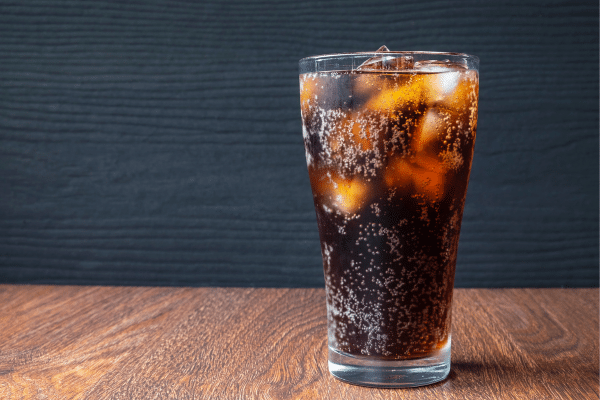
Soda has long been at the forefront of the debate over unhealthy beverages. Laden with high levels of sugar, a single can of soda can contain more than the recommended daily sugar intake. Regular consumption of such high sugar levels is linked to various health problems, including obesity, type 2 diabetes, and tooth decay. The empty calories provided by sodas offer no nutritional benefits and can lead to weight gain and other health complications over time.
In addition to sugar, sodas often contain artificial preservatives and colorings, contributing to their appealing taste and appearance. However, these artificial additives have been the subject of much scrutiny and debate among health professionals. Some studies suggest a link between these additives and an increased risk of certain health issues, including allergic reactions and hyperactivity in children. It’s crucial for consumers to be mindful of these potential risks and consider healthier alternatives to quench their thirst.
Energy Drinks
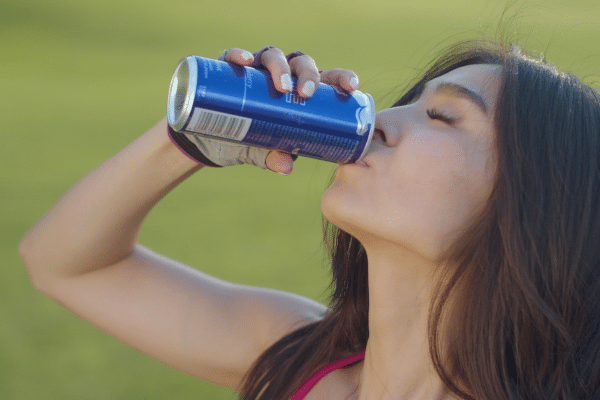
Energy drinks are marketed as a quick fix to boost alertness and physical performance. However, the high caffeine and sugar content in these drinks can have serious health implications. Consuming large amounts of caffeine can lead to increased heart rate, high blood pressure, and in extreme cases, caffeine overdose. These effects are particularly concerning for individuals with heart-related health issues or those sensitive to caffeine.
The sugar content in energy drinks is also a major health concern. Similar to sodas, energy drinks can contain excessive amounts of sugar, leading to spikes in blood sugar levels and contributing to weight gain. Additionally, the combination of high sugar and caffeine can lead to short bursts of energy followed by a “crash,” leaving individuals feeling tired and lethargic. It’s important for consumers to be aware of these potential risks and to moderate their intake of energy drinks, especially among younger demographics who are often the target market for these products.
Processed Fruit Juices
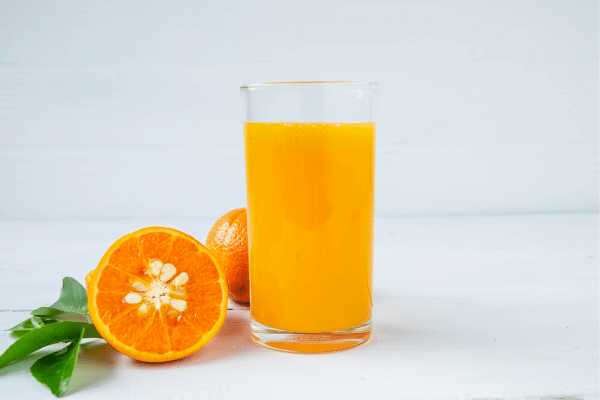
While fruit juices are often perceived as a healthy choice, not all juices live up to this reputation. Processed fruit juices can be deceivingly unhealthy, primarily due to their high sugar content and lack of fiber. Unlike whole fruits that provide essential fibers and a more balanced sugar intake, processed juices typically strip away fiber and concentrate sugar levels. This can lead to rapid spikes in blood sugar and insulin, contributing to weight gain and an increased risk of diabetes.
Moreover, many processed fruit juices contain added sugars or sweeteners to enhance flavor, further increasing their calorie content. The vitamin and mineral content often does not compensate for the high sugar levels, making these beverages a less nutritious option than whole fruits. It’s important to read labels carefully and opt for juices that are 100% fruit with no added sugars, or better yet, choose whole fruits to maximize nutritional intake.
Specialty Coffee Drinks

Coffee, in its pure form, can offer health benefits and is known for its antioxidant properties. However, specialty coffee drinks often turn a simple cup of coffee into a high-calorie concoction. Loaded with sugars, syrups, and whipped creams, these beverages can contain as many calories and sugars as a full meal. The excessive intake of these hidden sugars and calories can lead to weight gain and can increase the risk of heart disease and diabetes.
The appeal of these specialty coffees often lies in their rich taste and comforting texture, making them a popular choice for many. However, it’s crucial to be aware of their nutritional content. Opting for smaller sizes, asking for reduced sugar options, or choosing alternative milk can help mitigate some of the health risks associated with these indulgent drinks.
Alcoholic Beverages

Alcoholic beverages are known for their social and relaxation benefits, but their impact on health can be significant when consumed in excess. Most alcoholic drinks are high in calories and provide little to no nutritional value. Regular consumption of alcohol can lead to weight gain and can disrupt the balance of essential nutrients in the body. Additionally, alcohol is a diuretic, which means it can lead to dehydration and can impair the body’s ability to absorb vital nutrients.
Long-term excessive consumption of alcohol can lead to more severe health issues, including liver disease, heart problems, and an increased risk of certain cancers. It’s important for individuals to be mindful of their alcohol intake, understand the potential health risks, and consume alcohol in moderation as part of a balanced lifestyle.
Flavored Waters And Sports Drinks
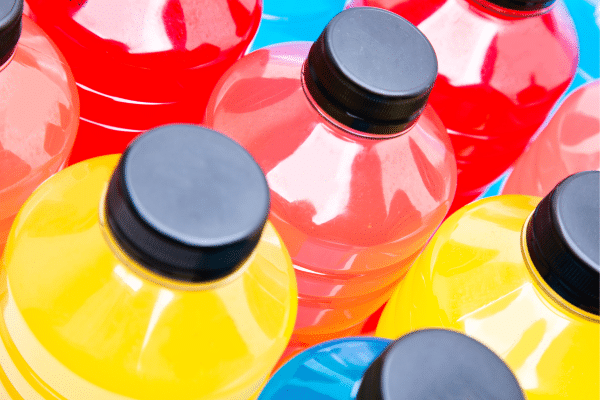
Flavored waters and sports drinks are often marketed as healthy hydration options, but their content can tell a different story. These drinks can contain significant amounts of sugars and artificial flavors, diminishing their health benefits. While sports drinks can provide electrolytes and energy during intense physical activity, their frequent consumption can lead to unnecessary calorie and sugar intake, especially for individuals with a sedentary lifestyle.
The appeal of flavored waters and sports drinks often lies in their taste and the promise of added vitamins and minerals. However, it’s crucial to read the labels and be aware of the sugar and additive content. For everyday hydration, plain water or infused water with natural fruits are healthier alternatives that can provide hydration without the added sugars and calories.
Pre-Made Smoothies And Protein Shakes
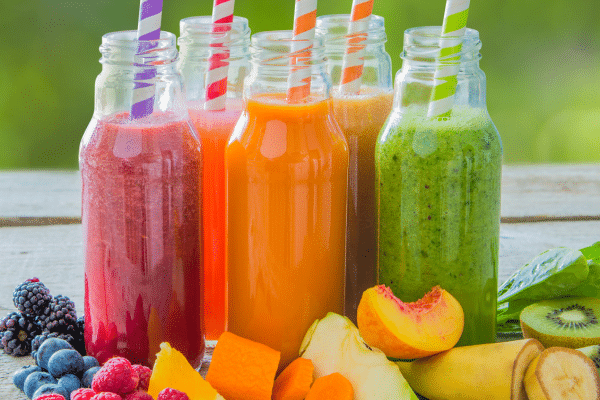
Pre-made smoothies and protein shakes are often perceived as a convenient and healthy choice for those on the go. However, many store-bought options are loaded with sugars, preservatives, and calories, making them less healthy than they appear. The high sugar content can contribute to weight gain and can counteract the nutritional benefits of the fruits, vegetables, and proteins present in these drinks.
Understanding the ingredients and nutritional content is key when choosing pre-made smoothies and protein shakes. Many products contain added sugars or syrups to enhance flavor, overshadowing the natural benefits of the ingredients. Making smoothies and protein shakes at home allows for control over the ingredients, ensuring a healthy and nutritious beverage that supports rather than hinders health goals.
The Bottom Line
Navigating the world of beverages can be complex, with many options masquerading as healthy choices. This blog post has highlighted the importance of being informed about the contents of popular drinks, understanding their health implications, and making conscious choices. From sodas and energy drinks to specialty coffees and alcoholic beverages, the key is moderation and awareness. By opting for healthier alternatives, such as water, herbal teas, or homemade smoothies, individuals can enjoy delicious beverages without compromising their health. Making informed decisions about what to drink is an essential step toward a balanced and healthy lifestyle. As with all aspects of diet and nutrition, understanding and mindfulness are the keys to making choices that support overall well-being and health.


